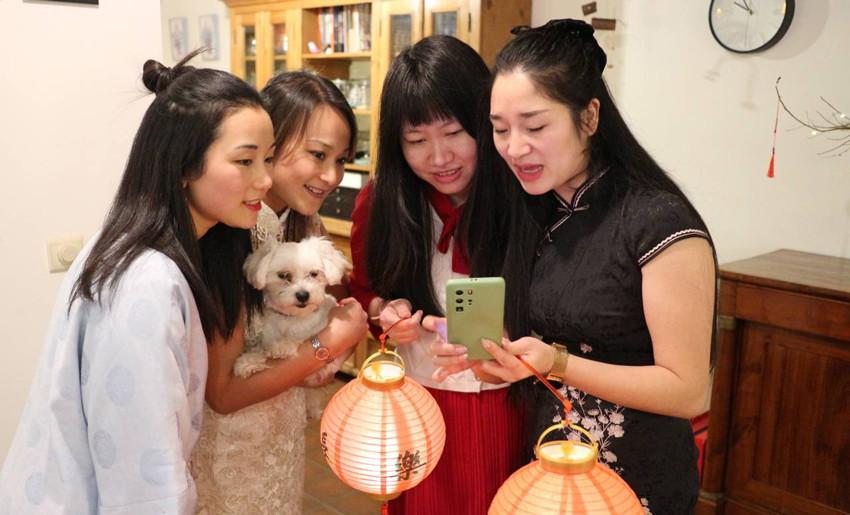The first day of the Spring Festival coincided with the rest day of Zheng Dongjing, a Belgian overseas Chinese. She made an appointment with her girlfriends early: on the first day of the Chinese New Year, everyone should celebrate this traditional Chinese festival together. "Although we lived close together, we never got together again after the outbreak of COVID-19." Dong Jing is very much looking forward to this reunion, and they have agreed to wear Chinese clothes and eat hot pot on the day of the party.
Early in the morning, Dongjing went to the China Ingredients Supermarket to purchase hot pot ingredients, and the two daughters put on the qipao and Hanfu that they had previously purchased from the domestic online, and she herself was dressed in Han costumes. The place to meet is set at the home of one of their girlfriends, in a village in the Belgian province of Antwerpen (city), less than 1,000 meters from Dong Jing's house. The 4 groups of families gathered, three of which were medium and small mixed families.

"Although we have lived overseas for many years, we grew up in China when we were young, and we have a deep affection for China, especially when we come to Traditional Chinese Festivals, we feel that we should have a sense of ceremony." Dong Jing is a "post-80s" who lived in Mayu Town, Ruian, Wenzhou until 2004. She then emigrated to the Netherlands and the year before to Belgium. In the past 18 years, she has completed life events such as marriage and children, and her career has gradually stabilized, and she has slowly adapted to the Western way of life. The only constant is that as soon as she arrives at the traditional Chinese festival, she transforms into a "smart kitchen lady": Qingming Festival, "change" out of Qingming Steamed Dumplings; Dragon Boat Festival, "change" out of Rice Dumplings; Mid-Autumn Festival, "change" out of mooncakes; before the Spring Festival, she can also pound out rice cakes. Most of these domestic "post-80s" girls will not make traditional snacks, but Dong Jing is proficient in making skills.
"Because I remember the food I remembered as a child, I kept researching and making a lot of tastes from my childhood." Zheng Dongjing said that every traditional Chinese food she cooks is a nostalgia for her childhood and a nostalgia for her hometown. However, foreign ingredients are limited, and she often has to find her own way to use substitutes to try and experiment to make the taste in her memory. Last Christmas, she used her own fried rice candy as a Christmas gift to her neighbors, and they liked it.
Not only to "relieve hunger", Dong Jing hopes to let her two daughters contact Traditional Chinese culture from a young age and perceive the beauty of Traditional Chinese Culture through food or clothing. "The older generation of immigrants is to make money, there is no time to take care of children, those children in pure Western education, lack of knowledge and understanding of China." Our generation is in good condition, and we can't let our children do the same. She said.